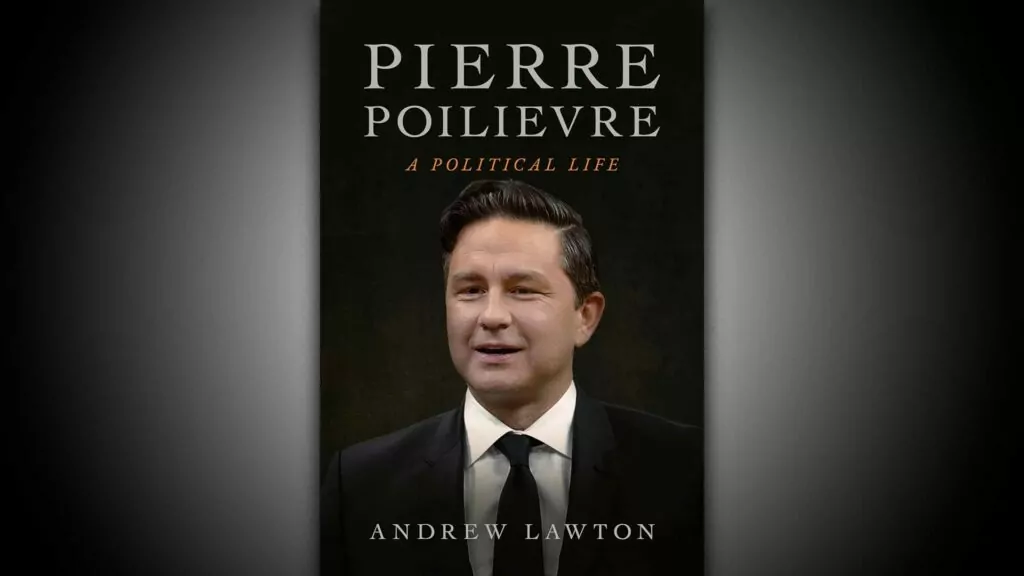I had always felt life first as a story: and if there is a story there is a story-teller.
― G.K. Chesterton
*****
There’s a phrase in popular culture – “I’m living my best life.” It captures the human desire to experience a fulfilling life. Advertising companies, film industry executives, recording artists, and popular culture teach us that the best life is one with white teeth, exciting vacations, the newest car, and living a life true to oneself. They are pitching a vision and story of how the best life can be obtained and are inviting us – enticing us – to run after the storylines they present.
But there is a remarkable verse in the Bible — one that speaks about “living our best life.” It is a countercultural verse that offers a doorway into understanding how to truly flourish.
John 10:10 tells us that Jesus Christ came “that we may have life and have it to the full.” Life to the full – our best life – we are told, is found in Jesus Christ. The “best life” that Jesus promises is a reality for followers of Jesus Christ through the eternal life He promises, and we can begin to experience it already in this life too.
How can we begin to live, already now, the “life to the full” that Jesus promises? When we know, and step into, the only real and true story – the glorious story that fits with reality – that God Himself is writing. When we say that we want to “live our best life” we are saying that we want our lives to be a beautiful story filled with adventure, love, purpose, meaning, connection, and joy. What God tells us in John 10:10 is that the only story that will fulfill all those longings is our participation in the story He is writing.
What is the story that God is writing? It can be divided into four broad “chapters,” with each chapter providing insights vital to the well-lived, flourishing life. The four broad chapters are:
- Creation
- Fall
- Redemption
- Restoration
The following will explore each of these chapters, and their implications for the flourishing life.
1. Creation
Last summer I caught a beautiful cutthroat trout while flyfishing. Knowing others would never believe I caught such a large fish without photographic proof (I’m known to be slightly enthusiastic about things), I spent a few moments taking pictures of the fish. When I put it back in the water to release it, it floated upside down and drifted deep into a large pool of water. I felt a tinge of sorrow that the fish was seemingly dying, and I felt more than a tinge of dread that I would have to wade armpit deep into the cold water to try retrieve and revive it. Thankfully, the fish spared me the frigid inconvenience when it caught a second wind, and with a flash of its tail, was gone. Fish thrive in water, but they die quickly when they are out of their element. This is similar for human beings. We only thrive when we live according to how we have been designed.
Thankfully, God’s opening creation “chapter” answers many of the biggest questions of life, such as: Who are we? Why are we here? And for what purposes have we been designed? It is in understanding the God-given answers to these foundational questions that we flourish.
The Bible teaches us that living in certain ways leads to death and living in other ways leads to life. As we read in Jeremiah, “For my people have committed two evils: they have forsaken me, the fountain of living waters, and hewed out cisterns for themselves, broken cisterns that can hold no water” (2:13). Elsewhere we read: “There is a way that seems right to a man, but in the end it leads to death” (Prov. 16:25). Some paths to the “best life” are empty vessels, but others are fountains of living waters. The path to life involves, in part, living according to our design.
So what are we told in the creation story about our identity, design, and purpose?
We are told that we are created in God’s image with dignity and worth, and we are designed to walk with God, to pursue holiness, and to seek His honor and glory above all. We are created male and female and to live within these identities as they have been assigned to us individually by God. We are created to live in community and to seek the welfare of others. We are designed to form and fill the earth and to continue the creative work of the Ultimate Creator.
The creation “chapter” tells us that God created the world beautiful and good, and He created you and me in His image and with a glorious purpose. We thrive when we live according to God’s design for us and pursue the truth, beauty, and goodness found in Him.
2. Fall
The next chapter, on Man’s fall into sin, also answers some of the big questions of life. It explains why the world is not as it could be, or should be, and where the solutions to this reality are found. Unless your head is buried in the sand it is hard to miss the brokenness of this world. As Malcolm Muggeridge once noted, the depravity of man is the most empirically verifiable reality (and ironically, also one of the most intellectually resisted facts). And this brokenness is found both within and outside of us.
To consider the extent of the brokenness within, reflect on how hard it is to forgive. God tells us that He forgives us so completely that He “removes our sins as far as the east is from the west” (Ps. 103:12) and yet how often do we not hold tightly to grudges.
As for the brokenness outside of us, consider that historians generally agree that there has not been a single year in human history that did not contain war (which they describe as a conflict causing more than a thousand deaths). Not one solitary year in the thousands of years of human existence has been filled with universal peace. How can a person flourish when there is so much misery in the world? Simply put, the beauty of the gospel story is that it helps us understand the brokenness and put it into the context of a larger story.
The Fall “chapter” gives us context because it rightly describes the problem so that we can apply the right solution. In my work as a psychologist, I have routinely observed the need to explore, in detail, the nature of the problems and issues people present to me because it is only when the precise nature of the problem is understood that an effective remedy can be applied. And this is true of any work. My son is a commercial refrigeration mechanic and the favorite aspect of the job for him is problem-solving customers’ issues – fully exploring why their refrigeration equipment is not functioning properly so that he can ensure that the solution he applies will, in fact, address the heart of the issue. In a similar way, to have the best chance of flourishing, you must understand the nature of the problems you face in your life (in your relationships, workplace, church, or family, etc.) so that you can gain proper perspective and apply appropriate solutions.
The Fall chapter illustrates how sin has destroyed the shalom that God provided in the creation chapter. Sin in our hearts, and in the hearts of others, does not surprise us (and when it is a surprise it often produces traumatic effects) but it directs us to the only comfort and solution as found in Jesus Christ.
We need to humble ourselves before God (and others) and seek the solutions to our brokenness (and to the brokenness around us) in Him and in His revealed Word. Only God can redeem our suffering and pain. At the same time, we can live in the hope that the brokenness in and around us is not the enduring reality of the world, and neither is the resulting pain. Goodness, beauty, and truth are the ultimate reality.
3. Redemption
Recently, I was talking with another psychologist about the topic of flourishing, and he said something striking to me – “flourishing is knowing that you are always okay.” I’ve thought a lot about his comment since then and even though I do not know whether he is a practicing Christian or not, there is a great deal of truth in this statement. There is an unshakeable peace in your soul when you know that, despite your feelings of inadequacy, loneliness, uncertainty, sin, and suffering you are ultimately always okay. Without such bedrock assurance human beings are prone to anxiety, depression, and insecurity. But the redemption chapter tells us that, in Jesus Christ, you are always okay, and you are always, completely, loved.
Research in psychology has demonstrated that children can only thrive when they have a secure base of attachment (called attachment theory). If children feel safe and loved, they present as calm and curious and willing to take risks and explore the world around them. But if children feel unsafe and unloved, they present as anxious, hostile, and withdrawn. Human beings need a secure attachment to flourish. The redemption “chapter” describes the rock, the foundation, the refuge, the secure attachment of our lives. In Christ we are completely safe and deeply loved. In Stumbling Towards Eternity, Josh White writes,
“My Christian life did not begin to open up until I truly believed in the depth of my being that on my worst day, Jesus is crazy about me. It’s not just Jesus but the triune God who loves and who is love.”
Or as Tim Keller wrote in The Meaning of Marriage:
“The gospel is this: We are more sinful and flawed in ourselves than we ever dared believe, yet at the very same time we are more loved and accepted in Jesus Christ than we ever dared hope.”
As Os Guinness has rightly noted, “the ultimate reality behind the universe is love” – a God that loves so deeply that He died for your sins, dear reader, and mine. When we let that reality sink deep into our hearts and minds, peace and joy enter our souls. And peace and joy are foundational to flourishing.
The redemption “chapter” tells us that in Jesus Christ, we are deeply loved – and nothing can separate us from that love – “neither death nor life, nor angels nor rulers, nor things present nor things to come, nor powers, nor height nor depth, nor anything else in all creation” (Romans 8:38-39). Flourishing comes from embracing this reality, loving others as we have been loved, and living a life of thankfulness and gratitude – two practices secular psychologists have overwhelmingly demonstrated to correlate with the flourishing life.
4. Restoration
Victor Frankl, a Holocaust survivor, and eminent psychologist, once famously wrote that “Those who have a ‘why’ to live, can bear with almost any ‘how.’” But an even bigger truth is that those who know the end of the story can bear with any what. My wife is a big reader. But she has a reading habit that I have never understood. She reads the final pages of a book before she begins reading the first pages. She likes to know how things work out in the end before she immerses herself in the drama of the story. There is great comfort in knowing the end of a story during the ups and downs of the narrative.
The same is infinitely truer of our own life stories. Not long ago, several people were killed in a Christian school in Nashville, Tennessee by a deranged shooter. One of the children was the daughter of a local pastor, Chad Scruggs. Just weeks before his daughter was murdered, he preached a sermon on John 11, and he focussed on the assurance found in that passage that “the middle of a hard story looks different when you know how the story ends.” That perspective must have provided him with incredible comfort in the wake of the personal tragedy he experienced. That is the beauty of the gospel. Despite what we may suffer in our lives because of the brokenness both within us, and outside of us, we know how the story ends and we do not “grieve as others do who have no hope” (1 Thess. 4:13). By God’s grace, we already know the end of the story that God is writing – God is “working to make all things new” (Rev. 21:5).
The title of Daniel Nayeri’s beautiful (and funny) book, Everything Sad is Untrue, could be an alternative title to the restoration “chapter” as it conveys the power of Revelation 21:5 in supplying hope, courage, joy, and peace to our lives – even amid the most difficult circumstances. In his book, Daniel tells an account of his families’ experience of persecution in Iran, and the hardships they faced, due to his mother’s conversion to Christianity. Daniel marvels at the strength his mother displayed despite the hardships she faced, and he writes,
“I don’t know how my mom was so unstoppable despite all that stuff happening. I dunno. Maybe it’s anticipation. Hope. The anticipation that the God who listens in love will one day speak justice. The hope that some final fantasy will come to pass that will make everything sad untrue. Unpainful. That across rivers of sewage and blood will be a field of yellow flowers blooming. You can get lost there and still be unafraid. No one will chase you off of it. It’s yours. A father who loves you planted it for you. A mother who loves you watered it. And maybe there are other people there, but they are all kind. Or better than that, they are right with each other. They treat each other right. If you have that, maybe you keep moving forward.”
Knowing that “everything sad will one day be untrue,” that across the “rivers of sewage and blood will be a field of yellow flowers blooming,” that one day all injustices will be made right, every disability will evaporate, every hurt will be removed, and every tear will be wiped away (Rev. 21:4), provides a hope that will not fail.
Without hope, people perish. The psychologist referenced earlier, Victor Frankl, observed that this was the case in the horror of the death camps of WWII as well. Those without hope died much sooner than those with hope.
God did not leave us without the kind of hope that sustains and strengthens even in the darkest circumstances. God assures us that:
“those who hope in the Lord will renew their strength. They will soar on wings like eagles; they will run and not grow weary, they will walk and not be faint.” (Is. 40:31)
As J.C. Ryle has said about hope, “I am more convinced as I grow older, that to keep our eyes fixed on the second coming of Christ is the secret of Christian peace.” The flourishing life is internalizing, amid the hurts and pain we experience in this life, what we are promised in 1 Cor. 2:9: “Eye has not seen, nor ear heard, nor have entered into the heart of man the things which God has prepared for those who love Him” – “a field of yellow flowers blooming.”
God is making all things new and He will restore the shalom of paradise. Even more, He invites us to participate in His beautiful work of restoration by being reconcilers and by being agents of His justice, mercy, love, truth, and goodness in all the roles and circumstances in which He places us. In Chuck Colson’s eloquent words,
“In every action we take, we are doing one of two things: we are either helping to create hell on earth or helping to bring down a foretaste of heaven. We are either contributing to the broken condition of the world or participating with God in transforming the world to reflect his righteousness.” (How Now Shall We Live?)
Participating in God’s work brings life to the world around you, but it also brings life to your own heart, soul, and mind.
Some final words
To summarize, I want to share one last important thought about finding the flourishing life in Jesus Christ.
I recently listened to a woman, Gianna Jessen, who survived an abortion attempt in 1977 tell her story. She described how doctors used a saline solution to try to end her mother’s pregnancy – and her life. She endured this saline “bath” for 18 hours in the womb. But miraculously, she survived. However, because of the method of abortion used, she was born with cerebral palsy due to lack of oxygen. She made the point that often children with disabilities or deformities are aborted due to the justification that they will not have a high quality of life (or any form of the “best life”). But then she also said something that served to fundamentally enrich my understanding of the flourishing life. She said (a rough paraphrase of her words):
“Do you know what it is like to live with cerebral palsy every day and struggle with every movement? It means that you must depend upon God at every moment. And do you know what it means when you must depend upon God at every moment and for every movement? It means that you become a friend of God. And do you know what it means when you are a friend of God? It means that you have the highest quality of life.”
God, in His grace, has invited us to be a part of the greatest story ever told. Knowledge of, and participation in this Great Story of truth, goodness, and beauty, is the “fountain of living water” and the “life to the full.” Accept no substitutes. Instead, know this story deeply. Let it permeate your heart and mind and participate in it with all your being. Even amid brokenness, you will be able to say that you are “living your best life.”
Dr. Mark W. Slomp holds a senior leadership role in a Canadian post-secondary university. He is a Registered Psychologist and is also the founder of XP Counselling, Speaking & Writing focused on the promotion of the flourishing life, and ambassadorship, in Jesus Christ. He can be reached at [email protected] for inquiries about speaking, counselling (career and personal), and writing.













